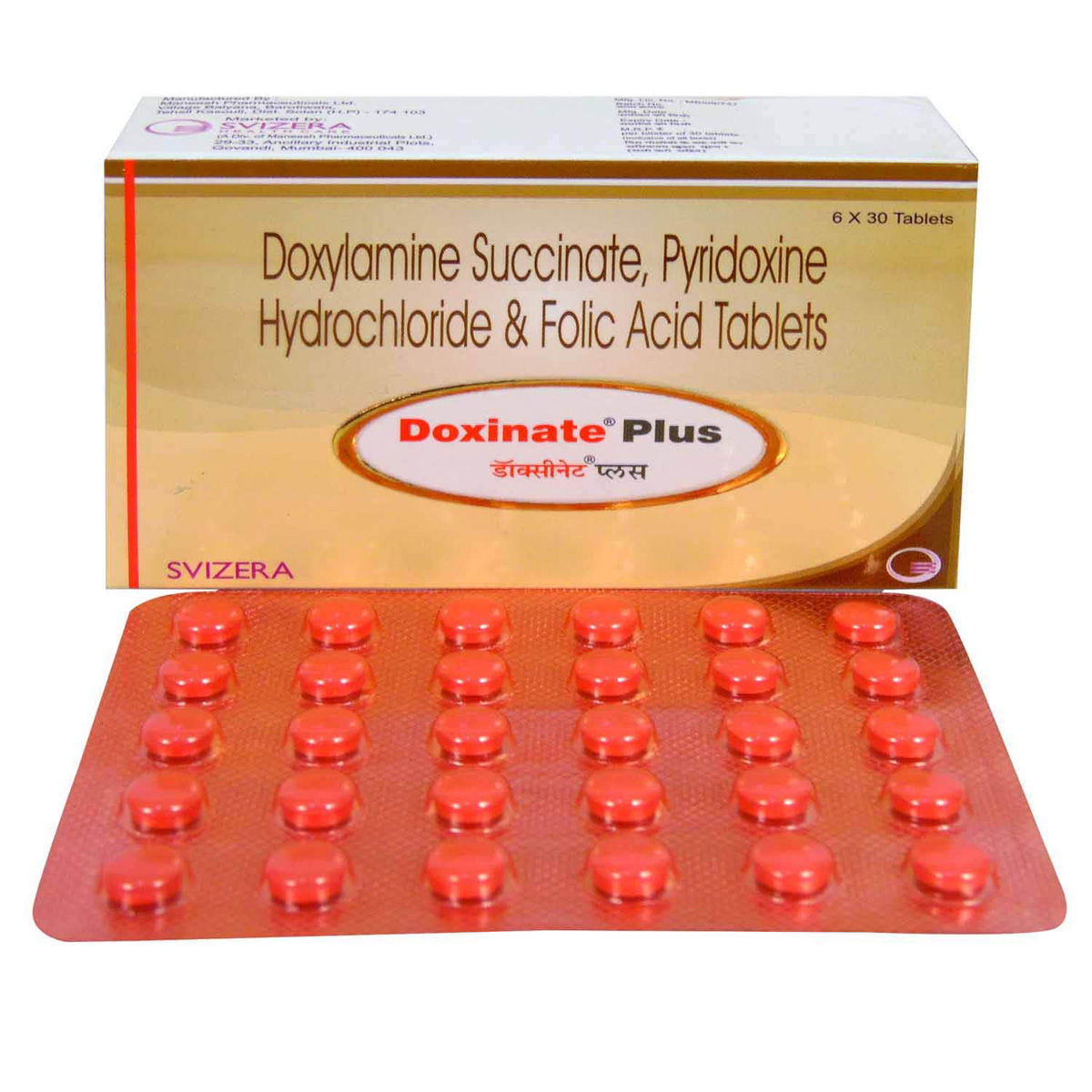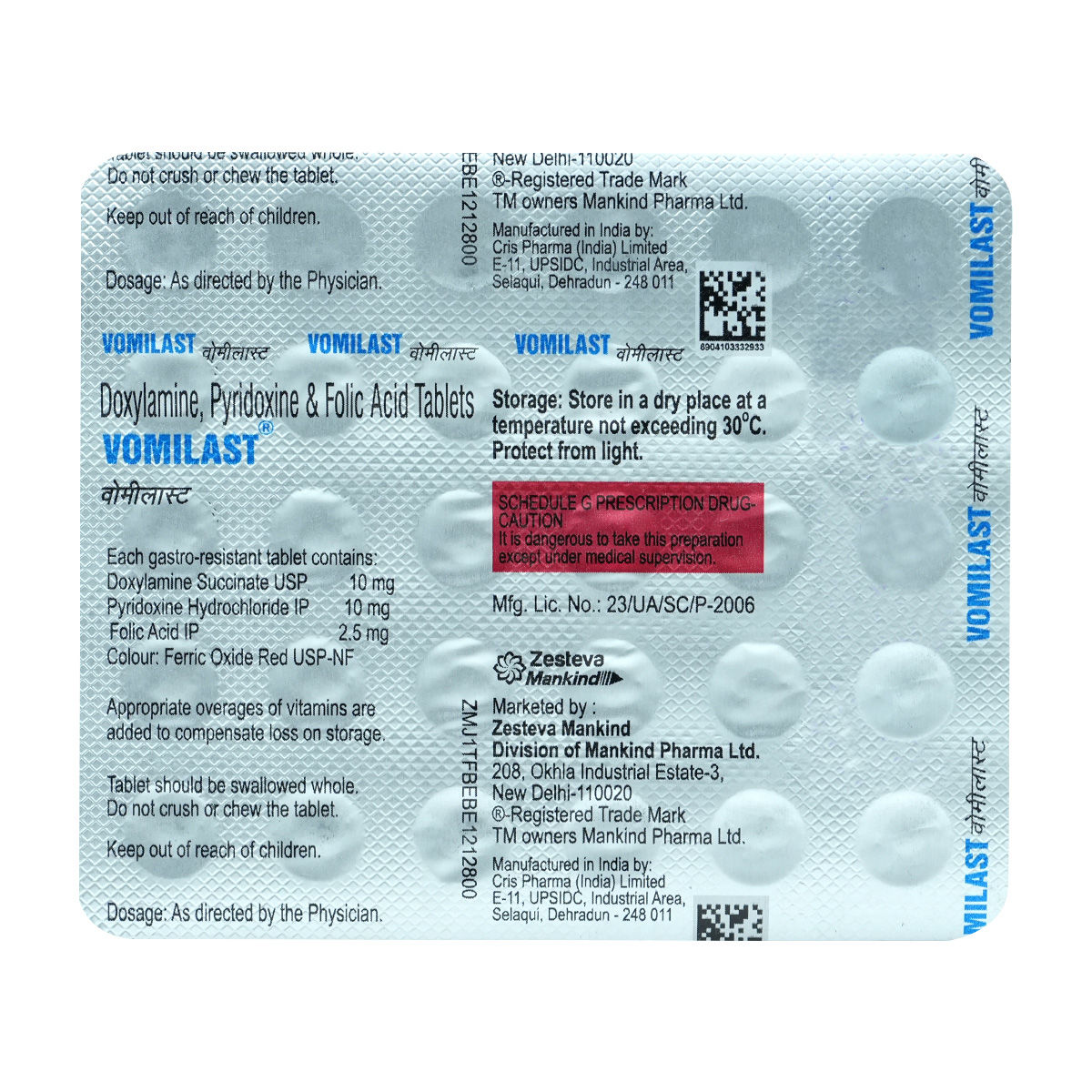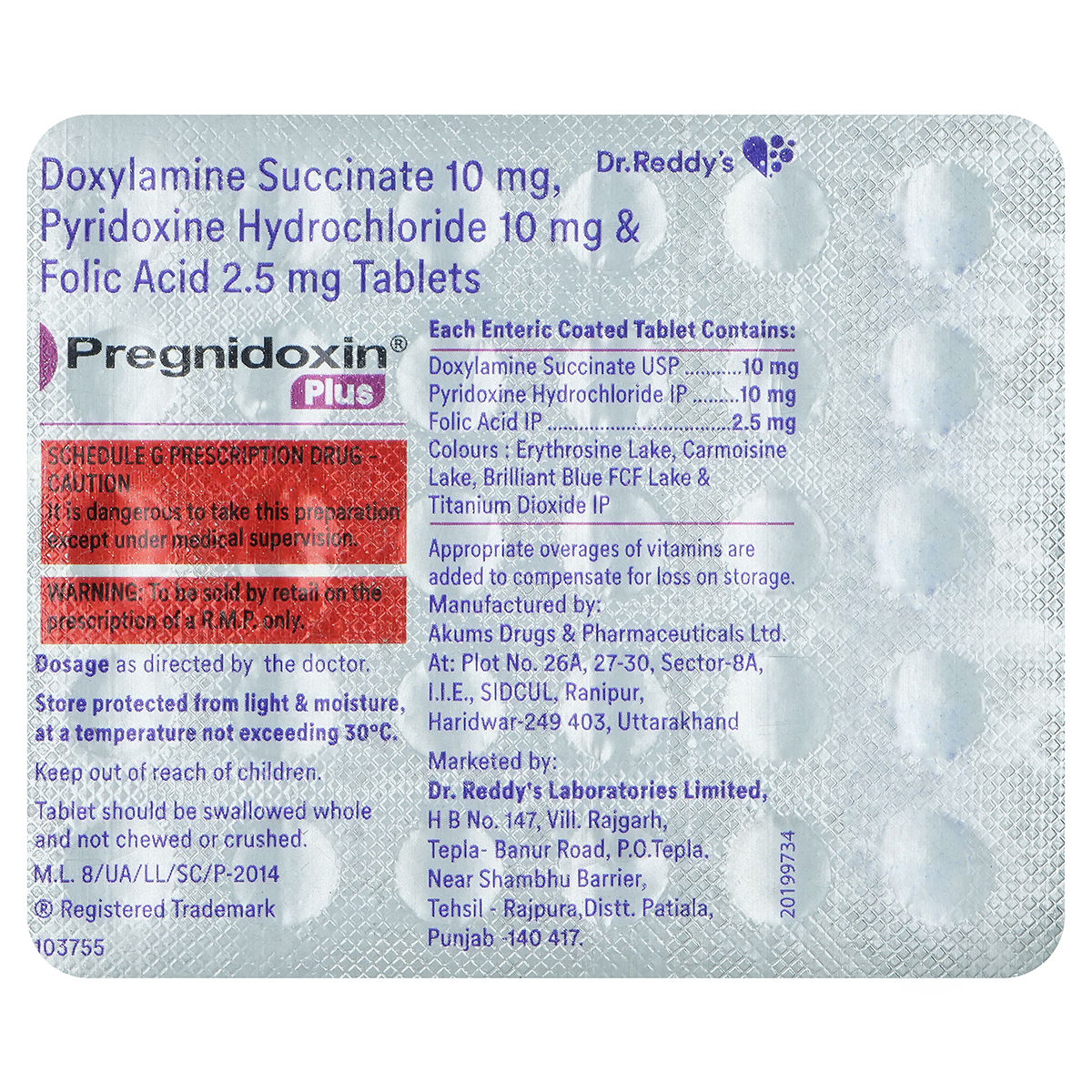Doxyam-10 Tablet 10's
₹58.5*
MRP ₹65
10% off
₹55.25*
MRP ₹65
15% CB
₹9.75 cashback(15%)
Free Delivery
With Circle membership
(Inclusive of all Taxes)
This offer price is valid on orders above ₹800. Apply coupon PHARMA10/PHARMA18 (excluding restricted items)
Know Your Delivery Time
Provide Delivery Location

Available Offers
 Prescription drug
Prescription drugWhats That

Secure Payment

India's Most Trusted Pharmacy

Genuine Products
Composition :
Manufacturer/Marketer :
Consume Type :
Return Policy :
Expires on or after :
About Doxyam-10 Tablet
Doxyam-10 Tablet belongs to the class of medications called ‘anti-emetics’ primarily used to treat nausea (feeling sick) and vomiting (being sick) during pregnancy. Morning sickness (nausea and vomiting during pregnancy) is a common symptom of pregnancy. It usually begins in the 6th week of pregnancy, lasting up to 16 to 18 weeks. However, some pregnant women have it throughout pregnancy. It can lead to electrolyte imbalances and weight loss in pregnant women.
Doxyam-10 Tablet contains Doxylamine, Pyridoxine, and Folic acid. Doxylamine is an antihistamine that works by blocking the natural chemical (histamine) in the body, thereby preventing nausea and vomiting. Pyridoxine is vitamin B6, and its deficiency may cause nausea and vomiting. It works by restoring the levels of vitamin B6 in the body and treating nausea and vomiting during pregnancy. Folic acid is also a form of vitamin B, which can provide essential nutrients during pregnancy.
You should take this medicine exactly as prescribed by the doctor. The common side effects of Doxyam-10 Tablet are dizziness, drowsiness, dry mouth, tiredness and constipation. These side effects are usually mild and temporary. However, if any of these side effects persist or get worse, inform your doctor immediately.
It is not recommended to take Doxyam-10 Tablet if you are allergic to any contents of it. Before taking Doxyam-10 Tablet , inform your doctor if you have asthma, glaucoma (increased pressure in the eye), stomach ulcer, blockage in the stomach and small intestine, blockage in the bladder, and vitamin B12 deficiency. It is not recommended for use in children and breastfeeding mothers. Do not consume alcohol while taking this medicine, as it may increase the risk of side effects. Doxyam-10 Tablet may cause drowsiness and dizziness, so do not drive or operate heavy machinery if you are not fully alert.
Uses of Doxyam-10 Tablet
Directions for Use
Medicinal Benefits
Doxyam-10 Tablet belongs to the class of medications called ‘anti-emetics’ primarily used to treat nausea (feeling sick) and vomiting (being sick) during pregnancy. Doxyam-10 Tablet contains Doxylamine, Pyridoxine, and Folic acid. Doxylamine is an antihistamine that works by blocking the natural chemical (histamine) in the body, thereby preventing nausea and vomiting. Pyridoxine is vitamin B6, and its deficiency may cause nausea and vomiting. It works by restoring the levels of vitamin B6 in the body and treating nausea and vomiting during pregnancy. Folic acid is also a form of vitamin B, which can provide essential nutrients during pregnancy.
How Doxyam-10 Tablet Works
Storage
Side Effects of Doxyam-10 Tablet
- Drowsiness
- Dizziness
- Tiredness
- Dry mouth
- Constipation
What if I have taken an overdose of Doxyam-10 Tablet
Drug Warnings
Doxyam-10 Tablet is usually prescribed for pregnant women to prevent nausea and vomiting. So, do not use it for any other indication without consulting your doctor. It is not recommended to use Doxyam-10 Tablet along with monoamine oxidase (MAO) inhibitors (antidepressants). In addition, inform your doctor if you are receiving anticoagulant (blood thinners) therapy, sleeping pills, pain killers and cough or cold medicines. Do not stop taking this medicine abruptly as it may lead to the recurrence of your symptoms.
Diet & Lifestyle Advise
Take a healthy diet that includes lots of fruits and vegetables, lean meats, skinless poultry, nuts, fish, whole grains, plant-based oils and low-fat dairy products will help to keep good health and avoid chances of nausea and vomiting.
Avoid taking greasy or oily foods as this food triggers nausea and vomit.
Eat cool foods instead of hot and spicy foods.
Include clear broths, non-fat yoghurt, fruit juice, sherbet and sports drinks for fluid make up which has got lost due to vomiting.
Include more cool beverages in your food like clear soup, flavoured gelatin and carbonated beverages. Also, when you drink with a stray, sip slowly to avoid swallowing air that may lead to gas and acidity.
Habit Forming
Therapeutic Class
Doxyam-10 Tablet Substitute

Doxinate Plus Tablet 30's
₹9.23per tabletVomilast 10/10/2.5 Tablet 30's
₹6.51per tabletNVTab Tablet 30's
by AYUR
₹7.34per tabletGoodmorn Plus Tablet 30's
by AYUR
₹7.56per tabletPregnidoxin Plus Tablet 30's
₹8.37per tablet
Product Substitutes
Alcohol
Unsafe
Do not consume alcohol while using Doxyam-10 Tablet as it may cause excessive drowsiness.
Pregnancy
Safe if prescribed
Doxyam-10 Tablet is recommended to treat nausea and vomiting during pregnancy. So, it is safe if prescribed in pregnant women.
Breast Feeding
Caution
Doxyam-10 Tablet should be used with caution in breastfeeding mothers as it may pass into breast milk. If prescribed, the doctor may advise you to stop breastfeeding.
Driving
Caution
Doxyam-10 Tablet may cause dizziness and drowsiness, so do not drive or operate heavy machinery if you are not fully alert.
Liver
Safe if prescribed
Doxyam-10 Tablet is probably safe in patients with liver diseases.
Kidney
Safe if prescribed
Doxyam-10 Tablet is probably safe in patients with kidney diseases.
Children
Unsafe
Doxyam-10 Tablet is not recommended for use in children as safety and efficacy have not been established.
FAQs
Country of origin
Manufacturer/Marketer address
Disclaimer
Author Details
We provide you with authentic, trustworthy and relevant information


















